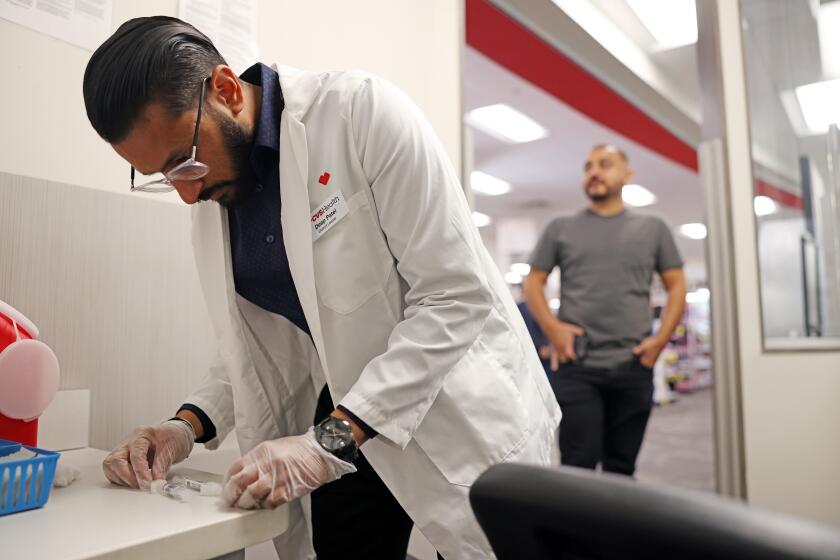Medical records and health studies should track sexual orientation and gender identity, report says
Gay, lesbian, bisexual and transgender patients have unique healthcare needs and concerns just as any minority does -- and those distinctions should be taken into account in studies and health records, says a new report released Thursday.
The Institute of Medicine report, meant as technical advice for the National Institutes of Health, recommended that federally funded studies ask participants about their sexual orientation and gender identity -- factors that could affect a person’s medical profile and health risks just as aspects such as race and age do.
The institute also recommended that medical professionals start including data on sexuality and gender identity in people’s electronic health records. But that will probably be more difficult information to collect: the study’s authors point out that this bit of information will probably be perceived as “more sensitive” than others.
As it stands, there are very little data out there on the health needs of LGBT patients, the paper’s authors point out. There is even less information about adolescent and elderly LGBT people than there is for LGBT adults, and comparatively less for transgender and bisexual people than there is for gay and lesbian patients.
And even with relatively little data available, says the report summary, there are already many observed differences between LGBT and other patients:
“These include that LGBT youth may have an elevated risk for attempted suicide and depression, and sexual minority youth may have higher rates of substance use than heterosexual youth; that one of the barriers to accessing quality health care for LGBT adults is a lack of providers who are knowledgeable about LGBT health needs as well as a fear of discrimination in health care settings; and that LGBT elders are more likely to rely on friends and others as caregivers rather than biological family members, at least in part because they are less likely to have children.”
Do you think information on sexuality and gender identity is useful medical information? Post your thoughts below.
Follow me on Twitter @LAT_aminakhan.




